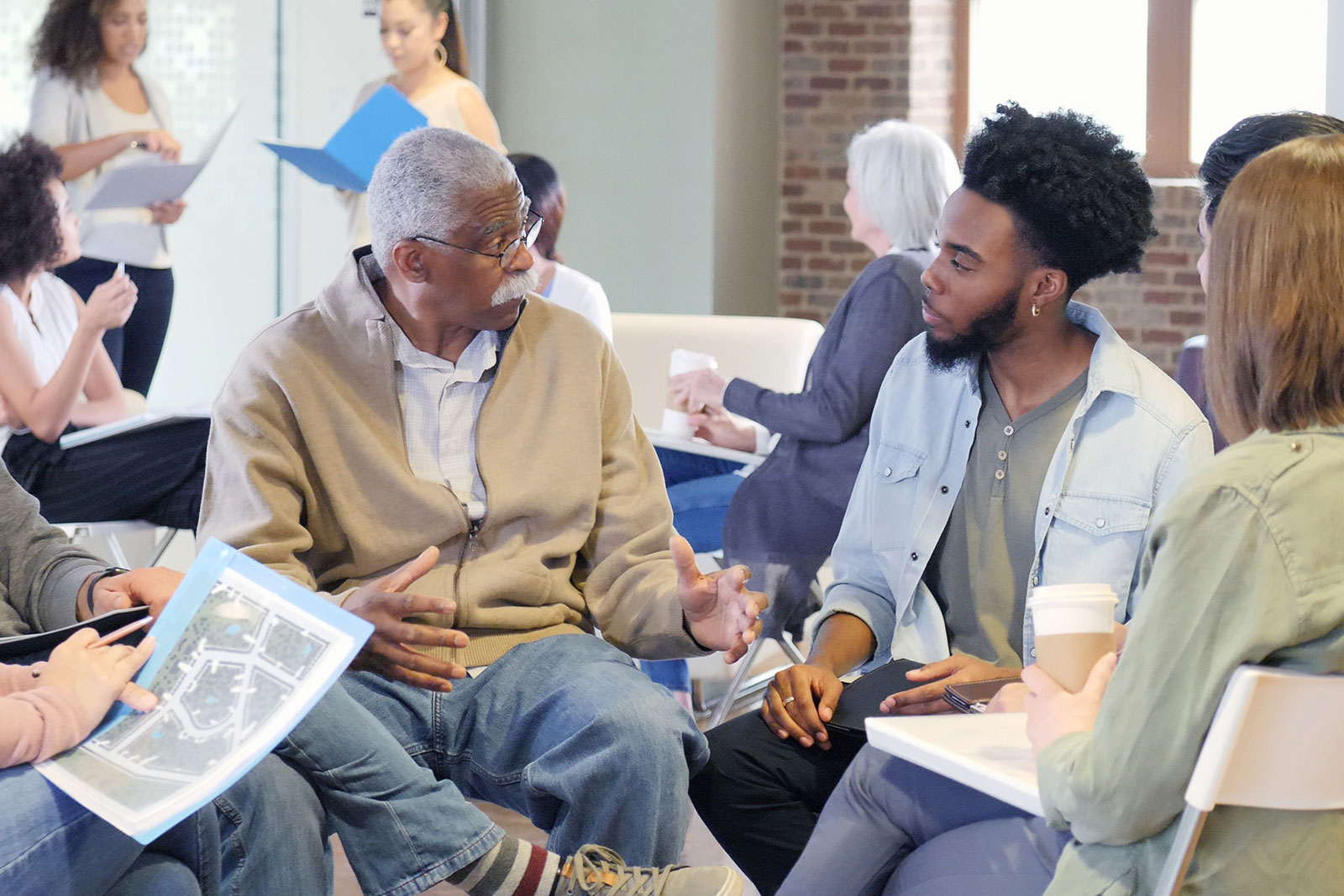“Part of our success is identifying niches and opportunities that no one touches,” says Darryl Mitteldorf, LCSW, executive director of Malecare. Malecare is a small but mighty nonprofit providing resources for people with prostate cancer, with a focus on helping populations that are traditionally underserved.
Malecare’s main initiatives include support services, a research program, and traditional advocacy efforts. The nonprofit provides weekly, 90-minute, psychosocial support groups led by a social worker or psychologist who has or is in remission from prostate cancer, bringing together 10 to 15 men to talk about issues they face in treatment. “We basically debunk the idea that men don’t talk,” says Mitteldorf. “We find that sexist nonsense.”
Through these support groups, Malecare is able to find out what resources are needed most. “The things that we do [are] generated by what we hear in the support groups. […] We can sort of harvest ideas that not in a million years would any of us individually have come up,” says Mitteldorf.
For the past 21 years, this New York City-based nonprofit has been branching across the country, and then the world. “We now consider ourselves a multinational organization because we partner with our counterparts in other parts around the world,” says Mitteldorf. “We like to think of ourselves as having influence from Iceland to South Africa.”
Malecare also succeeds in spreading awareness about how different communities experience prostate cancer and its treatment. “If you ask a doctor how they treat their gay patients or their black patients, [they’ll say] ‘Well, I treat them no differently than any other patient,’” says Mitteldorf. “Which is really them saying, I treat them like the heterosexual, [white], protestant, middle-class or upper- class patients that pay their bills and have insurance.”
This is a common disparity in medical care, according to Mitteldorf, and one that Malecare is doing its best to fight. Despite the fact that African-American men die from prostate cancer at 2.4 times the rate of their white counterparts, there are very few nonprofits that put as much time and effort into educating this community as Malecare.
“One of the great insults broader society does is when they say they’re going to do things better, [be] more accessible to people, [but they’ll] take the same brochure and just put black imagery on it,” begins Mitteldorf. “That’s not being inconclusive. […] It’s nice, but it doesn’t even touch on what’s enough.”
“We basically debunk the idea that men don’t talk,” says Mitteldorf. “We find that sexist nonsense.”
Malecare’s forthcoming resource “Prostate Cancer While Black” addresses many concerns black men might find when being treated for prostate cancer. These community-specific resources are reaching populations that few have worried about before. And this is similar for the LGBTQ+ com- munity. Malecare’s 1998 program Gay Men with Prostate Cancer was hallmark in the prostate cancer treatment world. “It was the first time any LGBT-focused cancer support group was developed,” says Mitteldorf.
According to Mitteldorf, prostate cancer treatment almost always impacts sexual health—many men experience erectile dysfunction (ED) due to cancer treatments that damage nerves and blood supply, and hormone therapies that affect sexual desire—the response of which will be different for straight and gay people (as gay men are more likely to utilize the prostate during sex). It is knowledge like this that Malecare is spreading to make the doctor-patient relationship more easily navigable. “It’s about identity, it’s about who they are,” he says.
Mitteldorf says that the results of their efforts are best understood by consistent donations from the community. “Titans of industry to homeless people—they reach into their pockets and pull out spare change and a dollar more,” he says.
“It’s individuals, and we like that in the sense that it validates the work that we do.” Apart from support services, Malecare also participates in traditional advocacy efforts, such as writing to legislators to increase research funding, and their own research—Malecare’s “cancergraph,” a program for quality-of-life data collection, is being used around the world to document and improve treatment symptoms. But the work doesn’t stop there.
Ultimately, Malecare’s mission is to “help men live longer and happier lives,” according to Mitteldorf. And it will take everyone working together to reach these goals. “People [need] to understand that to help one person is to help all of us, and that one person is someone other than yourself.”
Learn more at Malecare.org







